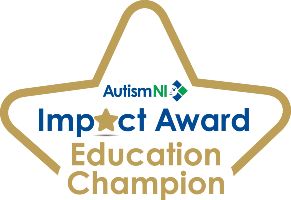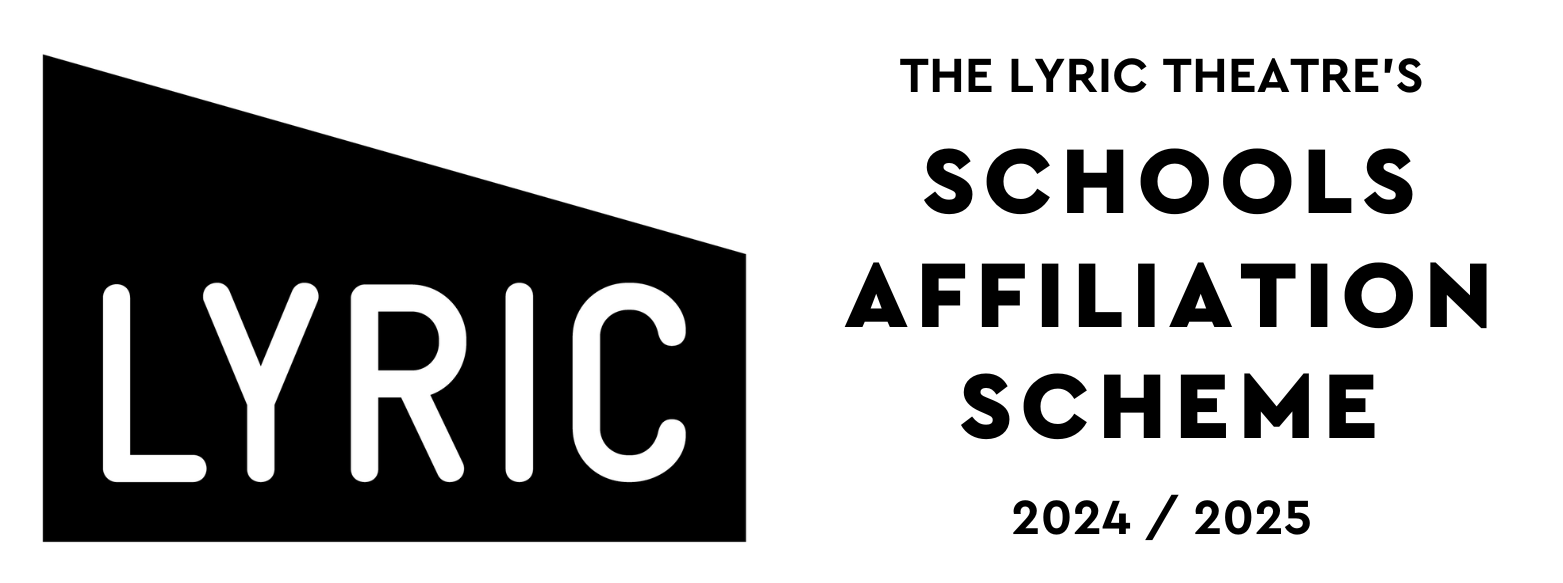Home Economics
SPECIFIC AIMS OF THE DEPARTMENT
The Home Economics Department aims to:
-
develop pupils’ knowledge and understanding of nutrition and the importance of diet in health and well-being
-
teach pupils how to make and prepare a range of healthy meals and nutritionally balanced meals.
-
develop pupils’ skills at sequencing tasks to be done, managing time and working with others.
-
explore the importance of the family as a caring unit.
OVERVIEW OF KEY STAGE 3 CURRICULUM
At Key Stage 3, Home Economics is delivered over two lessons per fortnight.
Our aim is for pupils to gain the knowledge and skills to understand relationships family, appreciate the importance of diet in health and well-being, and to plan and prepare a variety of healthy and nutritionally balanced meals. Practical work is an important part of the programme of study in Years 8, 9 and 10. The pupils learn a wide range of techniques used in the preparation of food. Assessment in Key Stage 3 Home Economics is largely skills-based assessment and includes group tasks and practical cooking activities.
OVERVIEW OF KEY STAGE 4 CURRICULUM
At Key Stage 4, the Home Economics Department offers Child Development and Food at GCSE Level. Pupils follow the CCEA specification for both of these subjects. Child Development and Food and Nutrition are delivered over six lessons per fortnight.
GCSE CHILD DEVELOPMENT
- There are three units: two externally assessed and one internally assessed.
- The specification
allows students to develop knowledge, understanding and skills relating to:
– family, pregnancy and the responsibilities of being a parent;
– birth and caring for a newborn baby;
– diet and lifestyle choices and their impact;
– the dietary and developmental needs of young children; and
–the health and well-being of young children.
Unit 1: Parenthood, Pregnancy and Newborn Baby (30%)
In this unit students learn about the responsibilities of parenting, the development of a healthy pregnancy, the stages of labour and the arrival and care of a newborn baby.
This unit is assessed in the form of a 1 hour 15 minutes written examination
Assessment of this unit will take place at the end of Year 11.
Unit 2: The Development of the Child (0-5 years) (30%)
Students learn about the needs of a child and the importance of all aspects of a child’s health and development from 0–5 years.
This unit is assessed in the form of a 1 hour 15 minutes written examination at the end of Year 12.
Unit 3: Controlled Assessment: Investigation Task (40%)
Students carry out a task that develops unique and transferrable skills. They choose one task title from a choice of two and research it.
They plan and carry out activities to produce an outcome and must evaluate all aspects of the task.
This unit is assessed in the form of a Controlled Assessment in Year 12.
GCSE FOOD AND NUTRITION
This is a linear course with assessments are completed at the end of the course.
GCSE Food and Nutrition allows students to develop knowledge, understanding and skills relating to the:
- nutritional content of foods;
- nutritional and dietary needs of specific groups and how to cater for them;
- health issues associated with dietary and lifestyle choices;
- factors affecting how we buy food, what we buy and what we waste;
- importance of food safety; and
- preparation of food, cooking and presentation of dishes.
The specification allows students to progress to GCE and/or
There are two components: one externally assessed (50%) and one internally assessed (50%).
Both assessments are completed at the end of the course.
The specification allows students to develop knowledge, understanding and skills relating to the:
- nutritional content of foods;
- nutritional and dietary needs of specific groups and how to cater for them;
- health issues associated with dietary and lifestyle choices;
- factors affecting how we buy food, what we buy and what we waste;
- importance of food safety; and
- preparation of food, cooking and presentation of dishes.
The specification allows students to progress to GCE and/or other courses of study or employment.
Component 1: Food and Nutrition (50%)
Students learn about the nutritional content of food and how the specific nutritional and dietary needs of different people can be met by modifying recipes and planning, preparing and cooking meals and dishes that reflect current government nutritional guidelines
This unit is assessed in the form of a written two-hour examination at the end of Year 12.
Component 2: Practical Food and Nutrition (50%)
Students carry out a task that develops unique transferrable skills. They research the given task title and various viewpoints on it. They choose and justify a practical activity using a range of criteria. They complete the activity in a single session and evaluate all parts of the task.
This unit is assessed in the form of a Controlled Assessment, a written report and a practical activity, in Year 12
OVERVIEW OF KEY STAGE 5 CURRICULUM
At Key Stage 5, the Home Economics Department offers Nutrition and Food Science at AS and A2 Level and. Pupils follow the CCEA specification for both of these subjects. At AS and A2 Level, Nutrition and Food Science and Health and Social Care are delivered over 12 periods per fortnight.
GCE Nutrition and Food Science
AS Nutrition and Food Science
At AS Level, pupils must successfully complete two units. Students can take the AS course as a final qualification; or complete two further A2 units for a full GCE A Level qualification.
The full Advanced GCE award is based on students’ marks from the AS
(40 percent) and the A2 (60 percent).
This specification aims to encourage students to:
-
develop and apply knowledge, understanding and skills to meet human needs in a broad range of activities;
-
develop an awareness of how to manage resources to meet an identified human need in a diverse and ever-changing society
-
develop higher order critical thinking skills such as problem-solving and decision making;
-
develop personal capabilities such as self-management and working with others;
-
become independent and lifelong learners;
-
develop Cross-Curricular Skills of Communication, Using Mathematics and Using ICT;
-
take account of and develop an awareness of rapid technological changes and the growth of scientific knowledge and understanding;
-
carry out research and present their findings in different formats; and
-
demonstrate through challenging internal and external assessments that they understand and can apply key concepts.
Unit 1: Principles of Nutrition (20% of A Level)
In this unit, students learn about macronutrients and micronutrients and other dietary constituents. They also study nutritional requirements and current dietary recommendations for each life stage.
This unit is assessed in the form of a 1 hour 30 mins written examination at the end of Year 13.
Unit 2: Diet, Lifestyle and Health (20% of A Level)
In this unit, students investigate current research on diet, lifestyle and health, explore the trends in food consumption that have led to increased prevalence of diet-related disorders and investigate a range of Diet-related disorders.
This unit is assessed in the form of a 1 hour 30 mins written examination at the end of Year 13.
A2 Nutrition and Food Science
Unit 3: Option A: Food Security and Sustainability (30% of A Level)
In this unit, students examine consumer behaviour when making food purchasing decisions and consider the issues and implications of consumer food choice.
Assessment for this unit is a 2 hours 30 mins written examination at the end of Year 14.
Unit 4: A2 2: Research Project (30% of A Level)
In this unit, students are required to complete a 4000 word research-based project which will be internally assessed.
Assessment of this unit will take place at the end of Year 14.
GCE Health and Social Care
AS Health and Social Care
In St. Mary’s we only offer a single award qualification in Health and Social Care. For a full GCE Single Award qualification students must complete six units: three assessment units at AS and another three at A2, including two compulsory internally assessed and two compulsory externally assessed units.
Students may also take the three AS units as a final qualification.
Unit 1: Promoting Quality Care (10% of A Level)
This unit is assessed in the form of a written report: students produce a written report, based on a health, social care or early years setting that they have experienced. The report based on their investigation of the setting will discuss how staff may apply the three values of care in their work, describe how legislation impacts on the chosen setting, discuss the application of appropriate aspects of health and safety legislation in and evaluate the effectiveness of two policies in promoting quality care. Students also research an example of poor practice in a health, social care or early years setting in the United Kingdom.
Assessment of this unit will take place at the end of Year 13.
Pupils’ work in this unit will be internally assessed and externally moderated.
Unit 2: Communication in Health, Social Care and Early Years Settings (10% of A Level)
This unit is assessed in the form of a written report: students are required to produce a written report on the communication skills they have observed in a health, social care or early years setting. Students also evaluate their own communication skills by carrying out an interaction in their care setting.
Assessment of this unit will take place at the end of Year 13.
Pupils’ work in this unit will be internally assessed and externally moderated.
Unit 3: Health and Well-Being (20% of A level)
In this unit, students learn about key concepts of health and well-being, the range of service users’ needs and the impact of health and ill health on individuals. They investigate a range of factors that affect health and well-being. Students examine health promotion approaches and investigate a campaign. They consider the roles of a range of organisations responsible for health and well-being. Students recognise the impact of discrimination on health and well-being and the importance of anti-discriminatory practice in health, social care and early years’ settings.
Assessment for this unit consists of a two hour written examination at the end of Year 13.
A2 Health and Social Care
Unit 3: Providing Services (30% of A level)
In this unit, students develop knowledge and understanding of service provision in the health, social care and early years’ sectors. Students learn about how services have developed and how they are structured, regulated and funded. They examine how policy, legislation and demographic characteristics
can influence service provision. Students also explore the role of practitioners and how they work in partnership to identify and meet service users’ needs. As this unit is synoptic, elements from the other units will inform the students’ understanding of the subject.
The unit is assessed externally by a two hour written examination based on pre-release material that CCEA provide, which focuses on one service user group. The pre-release material will specify the relevant service user group. It will be available eight weeks before the examination.
Unit 4: Public Health and Health Promotion (15% of A level)
In this unit students produce a written report on health improvement priorities in Northern Ireland, undertake a health promotion activity and report their findings. They plan, implement and evaluate a small-scale health promotion activity either individually or in a group of no more than five. Their activity will be based on a Northern Ireland health promotion priority that has significance for a specific group, for example primary school children.
Assessment of this unit will take place at the end of Year 14.
Students’ work in this unit will be internally assessed and externally moderated.
Unit 5: Supporting the Family (15% of A level)
In this unit, students focus on changing and evolving family structures in today’s society. Students develop an understanding of factors that influence family life. They research the range of family structures and the functions of families. They also investigate the wide range of services available to families and the support that these services offer. Students produce a case study that describes their findings. They also investigate and produce a report on how statutory services and voluntary organisations support families with significant issues.
Assessment of this unit will take place at the end of Year 14.
Students’ work in this unit will be internally assessed and externally moderated.
ADDITIONAL SUBJECT INFORMATION
EXTRA- CURRICULAR PROVISION
The Home Economics Department contributes extensively to the school’s extra-curricular provision. Extra-curricular activities include:
-
After School Cookery Club
-
Trips to Loughry College at KS5
-
Visiting cookery demonstrations from LMC
-
In school cookery competitions e.g., Gingerbread house competition
-
Helping with wardrobe for school productions
-
Care setting visits for KS5 Health & Social Care students
FACILITIES AND RESOURCES
The Home Economics department has a part-time technician.
One technician preparation / storeroom,
One equipment, bookstore and work area room.
Two multi-purpose practical classrooms
One ICT suite with 22 student PCs
All rooms have interactive white boards.
CAREERS INFORMATION
Students who do GCE Nutrition and Food Science might choose a career in areas such as:
Food Technology, Sports Nutrition, Food Design and Nutrition, Food Management and Marketing, Consumer Studies, Environmental Health and Dietetics. Health and Social care students might follow a career in education, nursing and midwifery, community youth work social work, care home management, occupational therapies, educational psychology, and law.









